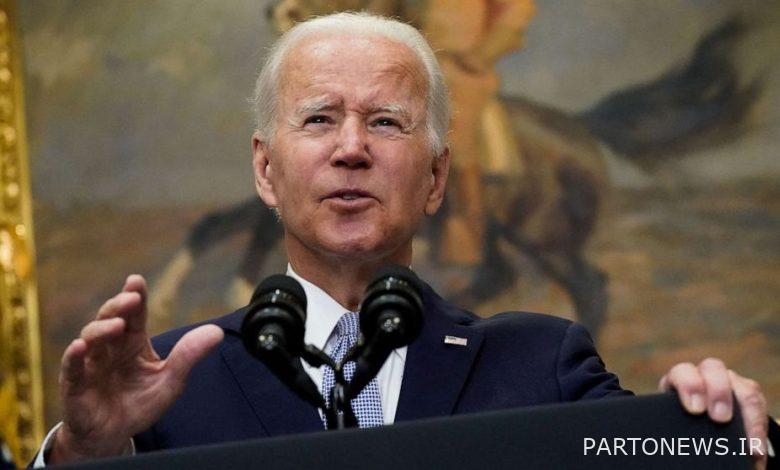Biden’s claim: The American economy is on the right track

US President Joe Biden said on Thursday local time: “It is no surprise that the economy is slowing down as the central bank seeks to deal with inflation.”
He claimed: In the situation where we are facing historical challenges in the world, we are on the right path and we will pass through this situation stronger and safer.
Biden also pointed to the performance of the American labor market and said that job creation in the United States is unprecedentedly strong and the unemployment rate has reached 3.6 percent and more than one million jobs have been created in the third quarter of this year alone.
The US Department of Commerce announced that the country is experiencing a contraction of its economy and recession for the second consecutive three-month period.
According to reports, this country has experienced a 0.9 percent contraction of its economy during the period of April to June (April to June) for the second time in a row.
The US economy experienced negative growth for the second consecutive quarter this spring and entered a so-called technical recession as high inflation and higher interest rates forced consumers and businesses to cut spending.
The US Department of Commerce announced on Thursday local time that the country’s gross domestic product decreased by 0.9 percent in the three-month period from April to June compared to last year.
American economic production in the first three months of this year experienced a 1.6 percent decline, the worst performance since the spring of 2020.
Seema Shah, senior analyst at Principal Global Investors, said: “Policymakers are undoubtedly trying to explain why the US economy has not entered a recession.” While two consecutive quarters of negative economic growth is technically a recession, other economic data do not indicate a recession.
According to the National Bureau of Economic Research, a recession is technically defined as two consecutive periods of negative economic growth and is characterized by high unemployment, low or negative GDP growth, declining income, and declining product sales.
The U.S. Federal Reserve announced on Wednesday local time that it will not back down in its fight against the country’s most severe inflation since the 1980s and will continue to fight despite a “sustained period” of economic weakness and a slowing labor market.
On Wednesday, the Central Bank of America announced a 75 percent increase in the country’s bank interest rate and said that if necessary to deal with inflation, it will increase the interest rate again in the near future.
Jerome Powell, the president of the US Federal Reserve Bank, on Wednesday rejected the recession in the US economy and said: “I don’t think that the US is currently in a recession.”
Bank interest rates in America, which increased by 75 percent last month, now reach 2.25 to 2.50 percent.
This rate has been the highest increase in bank interest in the last 15 years and since the beginning of the economic recession in 2007.
Nouriel Roubini, the economist and Treasury Secretary of Barack Obama’s government, also said on Tuesday local time: There are many reasons such as very high debt and financial crisis, which show that we are facing severe inflation. The idea that inflation will be short-term and weak is completely delusional.
Among the causes of inflation that Roubini mentioned are the unprecedented high debts in America following the Corona epidemic. He specifically pointed to the debt problem in advanced economies and said that these debts are still increasing.
The head of Roubini Macro Associates told Bloomberg that the situation is different from the 1970s. In the 1970s, the debt ratio was low in spite of stagnant economic growth and high inflation, which is called stagflation.
He added that since the financial crisis of 2008, which was accompanied by low inflation due to the credit crisis and demand shock, the debt has increased in America.
Roubini said: This time we are facing negative shocks and recession in supply and debt rates, which are unprecedentedly high.

